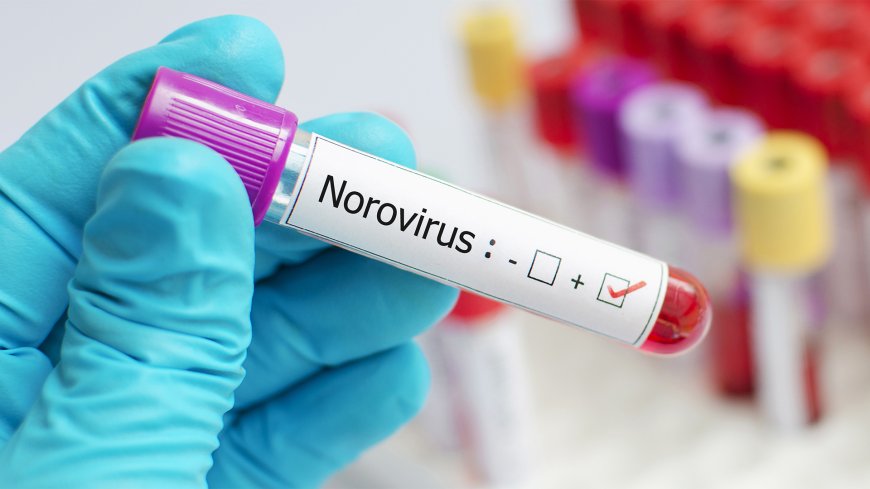What exactly is the norovirus?
Norovirus is a common cause of sickness and diarrhoea that can become life-threatening in some instances.

Norovirus is a common cause of sickness and diarrhoea that can become life-threatening in some instances. There are precautions you need to take right away if you have the norovirus or someone in your family has been diagnosed with it. To take care of yourself, heed the advice and practise proper hygiene.
What happens to the patient with norovirus in Ohio?
Norovirus causes physical suffering and emotional anguish. This article explains how to treat norovirus infection and keep it from spreading to others. Please get in touch with your healthcare provider for further details regarding the norovirus infection.
Is norovirus a dangerous disease?
Noroviruses are a group of viruses that are the most prevalent cause of gastroenteritis (gas-troh-en-tu-rahe-tis) in Ohio. Gastroenteritis is an inflammation of the stomach and intestines. Incorrectly referred to as the "stomach flu" (it is not linked to the flu at all), typical symptoms include nausea, vomiting, and stomach pain.
Patients may also experience a slight fever, chills, headache, body pains, and fatigue.Anyone can get norovirus, a frequent form of viral gastroenteritis. The condition ranges from moderate to severe, even life-threatening. The norovirus is very contagious and can be easily transmitted from one person to another through direct touch or contact with infected objects or surfaces. Children typically vomit more frequently than adults do, and the disease usually starts out rapidly with vomiting and/or diarrhoea. Even though the disease is terrible, it passes quickly. For most people, symptoms last about 24 to 48 hours without causing long-term health problems.
How does the norovirus spread among people in Ohio?
People in Ohio who are afflicted with the norovirus will have the virus in their faces and vomit. You can become infected with the virus in the following ways:
● Direct person-to-person interaction such as caring for an ailing person, sharing eating utensils, or kissing a person who is ill
● Touching or ingesting norovirus after coming into contact with contaminated surfaces or things.
● Consuming food or beverages that have been contaminated with the norovirus.
● You can get infected if you are around someone who is sick and throwing up.
Will the patients in Ohio always have the norovirus infection?
No. The norovirus causes an acute illness that generally lasts 1 to 2 days for most people, while some people may be ill or feel the effects for up to 6 days. Your body gradually gets rid of the entire virus after the disease has passed. Norovirus is not known to cause a long-term "carrier" state in a person. However, the virus can cause an individual to get ill or infected more than once in their lifetime. It doesn't seem possible to develop an immunity to the norovirus.
How do individuals know if they have norovirus?
Your doctor could take a stool sample from you for testing if they suspect you may have a norovirus infection. If you are in a place such as a long-term care home or assisted living facility where others have tested positive for norovirus, you may not need to be tested. If you have comparable symptoms, your doctor may diagnose you based on what is going around in the facility.
How is the norovirus in Ohio treated?
Since norovirus is a viral infection rather than a bacterial infection, your healthcare professional will not prescribe antibiotics to treat it. Currently, there is no antiviral drug effective against norovirus in Ohio, and there is no vaccine to prevent infection.
The norovirus produces vomiting and diarrhoea; people with these symptoms should drink plenty of fluids. It is beneficial to consume fluids that can replenish the body's electrolytes, which are quickly lost during vomiting and diarrhoea. Our bodies contain electrolytes, which are vital to the normal functioning of our muscles and neurons. Ask your pharmacist which electrolyte-containing drink would be best for you, as there are many different sorts and brands available, ranging from "sport" varieties to more comprehensive "medical" types.
In Ohio, what should patients do if they experience a norovirus outburst?
● Inform the staff or your healthcare provider if you believe you have norovirus.
● Inform the staff if you cannot keep fluids down and feel thirsty.
● When caring for you, healthcare professionals might take extra precautions, including dressing in gowns and gloves.
● While a norovirus outbreak is present, guests should think about staying away.
● After using the restroom and before eating, both patients and visitors should frequently wash their hands with soap and water.
● Norovirus patients shouldn't enter "common" sections of the hospital like the cafeteria and gift shop.
● If a visitor has vomiting or diarrhoea, they should stay at home and wait until they are symptom-free for two days before coming.
● Before entering the patient's room, visitors should check in with the nurse's station, follow their instructions, and always wash their hands before entering and after leaving the room.
What's Your Reaction?












































